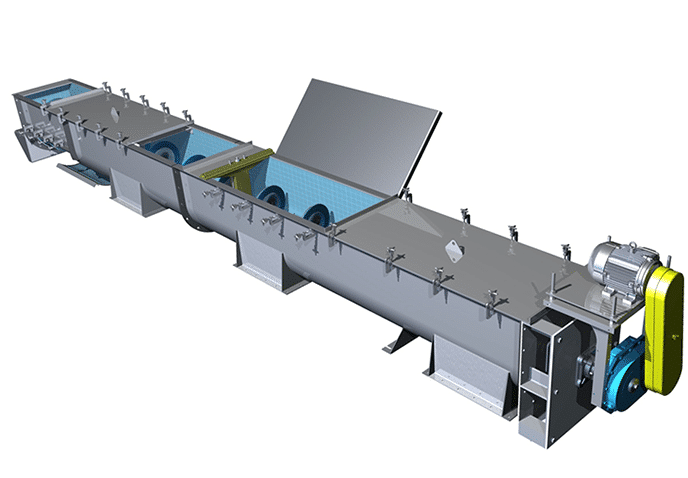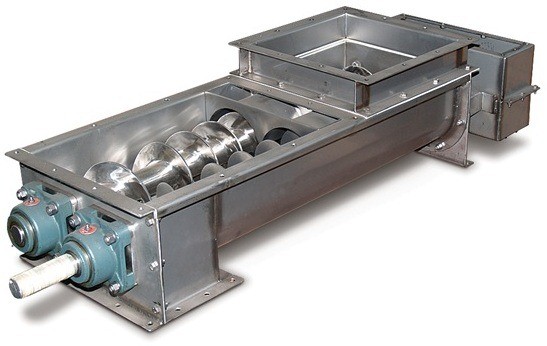Screw Conveyors
1. Horizontal Screw Conveyors
Horizontal screw conveyors are the most widely used type of screw conveyor. Used to convey bulk materials from one part of a process to another, horizontal screw conveyors are available in a wide range of sizes, lengths, configurations and materials of construction.
Screw conveyors are typically designed to convey bulk materials at 15, 30 or 45-percent trough loading, depending upon material characteristics of the specific bulk material. As a general rule, trough loading of 45-percent can be used for light, free-flowing and non-abrasive bulk materials. Trough loadings of 15 and 30-percent are typically used for denser, sluggish and more abrasive bulk materials.
2. Inclined Screw Conveyors
Inclined screw conveyors typically operate from slightly above the horizontal position to 45-degrees from the horizontal position. Above 45-degrees an inclined screw conveyor is considered a vertical screw conveyor and must be designed in accordance with the Metflo Process Guide for Vertical Screw Conveyors. As the degree of incline increases, conveying efficiency is reduced and horsepower requirements increase due to the effects of gravity and bulk material fall back.
Conveying efficiency is affected by angle of incline, characteristics of the specific bulk material, type of screw conveyor trough and screw pitch. Metflo Process recommends designing screw conveyors using the lowest possible degree of incline for maximum efficiency.


